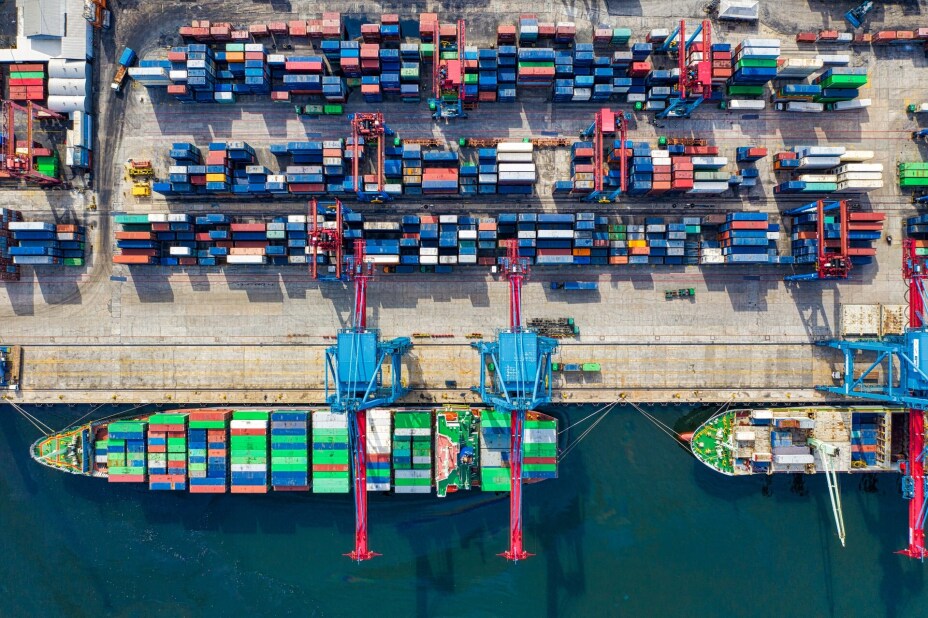If there’s one thing the majority of businesses aren’t short of, it’s data. Within the retail and manufacturing sectors, organizations have so much data that they’re effectively drowning in it. With data being described by some as the "new oil" and others as the ”new gold,” you’d think having so much data would be a good thing – and it is, but only if you’re able to use it. Unfortunately, for many businesses, this isn’t currently the case. The abundance of disconnected legacy systems means that they’re often working with data stored in different data silos and in different formats, which makes it difficult to get the information they need to run the business, make the best decisions, and identify risks and opportunities in the moment.
For many organizations, the events since March have shined a spotlight on the importance of clean, current, and healthy data. Most organizations already understand the importance of having the proper data management infrastructure in place to extract the information and insights hidden away in their various systems and sources to gain real-time visibility and adapt their operations as conditions dictate. In fact, the importance of implementing effective data management technology was highlighted in our recent research, which found that 89% of retail and manufacturing businesses see having this in place as an absolute requirement.
However, despite the best of intentions, these technology specific challenges still exist, which was highlighted by the severe impact of COVID-19 on retail and manufacturing businesses. Our research identified that 76% of businesses globally felt their technology-specific supply chain challenges were made worse by the pandemic, increasing to 82% for the UK. Now, with a second wave of the pandemic looking imminent, bringing with it further disruption and perhaps a repeat of the consumer buying extremities witnessed in March, implementing the right technology solutions and fine tuning their data strategy will ensure organizations are better able to adapt to further changes in demand.
Reacting to changes in demand
Countless organizations are still working in old established ways where much of the work is done manually, and data is managed with Excel spreadsheets. With the pandemic seeing demand for toilet paper skyrocket by 845% and stockpiling of items, adapting to changes in demand patterns has been a serious challenge as legacy processes and infrastructures haven’t been designed to accommodate these levels of variability. As such, many struggled to meet rapidly changing demands from customers, and customer service and brand loyalty suffered.
This period has highlighted the importance of technology and digital maturity in achieving the required levels of organizational agility. Businesses with advanced data management capabilities have shown themselves to be far more agile in responding to demand.
Turning data into information
One of the main issues currently facing supply chain organizations is integrating data silos so that they can access and analyze the data they need, eliminate blind spots, improve agility, and deliver outstanding customer service. This typically requires businesses to augment their existing supply chain and ERP applications (non-disruptively) with a data management platform that can provide an overarching and consistent view of any and all data across the organization. Modern data management platforms are scalable, provide rich data integration and transformation capabilities, and make use of advanced analytics including artificial intelligence (AI) and machine learning (ML) to enable scenario planning, respond faster to unexpected events, and incorporate intelligence into automated processes so they can become more resilient to fluctuations in the environment. These technologies can help businesses spot patterns in data which can inform predictions and enable more accurate forecasting. Additionally, availability of accurate, real-time data provides a wealth of opportunities, for example to provide retailers with confidence in the quantities of specific products on the shelves and in warehouses at any given time. The combination of real-time internal and external data can allow organizations to react more quickly to changes in the external environment and customer behavior. For example, an impending rainstorm may inform a retailer to change the placement of rain gear in a store, and the proximity of a customer to a retail location combined with real-time inventory levels can initiate a personalized special offer to draw her into the store.
Data management platforms also provide a wealth of tools for business analysts and business users to get the data they need and answers to their questions with self-service capabilities, so they don’t need to rely on IT for all of the information they need to run the business.
As mentioned previously, we are already seeing many supply chain organizations implementing these technologies to complement their existing systems, and the pandemic has only accelerated these efforts. In fact, 89% of organizations state that data management technology is critical to enable them to address these business challenges, and more than three quarters are looking to increase its adoption over the next 12 months.
Preparing for the future
By incorporating modern data management technology into the tech stack, organizations are able to provide the business with the information and the tools they need, integrating and harmonizing real-time data from inside and outside the enterprise, and applying advanced analytics to turn data into insights. It’s enabling organizations to become more agile, more resilient, and better prepared to respond to unexpected changes in demand faster and with less effort, so they are better prepared for when the next disruption happens.
To find out more about our research into the impact of the COVID-19 pandemic on supply chains and the challenges faced in the sector, download the eBook here.





























